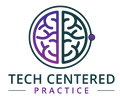5 Ways CRM's are Transforming Healthcare
A CRM is a customer relationship management tool that helps businesses manage their interactions with customers and potential customers. It can be used in any industry, but there are some industries where it's especially helpful. Healthcare is one of them! In this blog post, we'll go over 5 ways CRMs have transformed healthcare businesses in the past few years - including how they've helped clinicians to grow their practice and stay on top of things like patient records.
Tracking Patient to Office Interactions
CRM's have a number of benefits for healthcare practitioners. For one thing, CRMs make it easy to keep track of the interactions between your potential and existing patients with your office staff. Did you ever wonder if your staff followed up with that patient that requested an intake a week ago? Or if your office sent the medical records that were requested? A CRM can help you and your staff not only stay on top of tasks, but see what the team is doing so everyone is clear on the interactions between the office and patient.
1. Organizing Patient Scheduling
A CRM can make it easier for you to organize your patient scheduling. If a patient is requesting an intake appointment, you don't have to chase those potential patients down anymore! You can automate follow up emails and tasks to your staff to follow up with the potential patient on the time line that makes the most sense to convert those potential patients into actual patients. Spreadsheets are no longer necessary to track all incoming requests and status updates to keep your team on track.
2. Segmenting Your List
CRM's can also help you identify what your patients are looking for - and where they might be going to find it. For example, easily segment the people inquiring about your services by building a strategic webform then using that data to sort clients by interest to produce more specific targeted content to them whether it be more specific email responses, education on your service line, or content that provides education for their specific needs.
3. Improving You Patient Journey
There are many CRM's that can help you track patient data and flow, but it is not always enough to have the software. You have to have a team that communicates and are able to input the data from phone calls, email, or other methods of contact. CRM's can help you create a customized patient journey that consistently serves your clientele and gives them a positive experience.
4. Integrating CRM's with other Technologies
CRM software is often integrated into many different technologies in order to help your practice, especially when it comes to expansion of services or scaling your practice. CRM's can be integrated into technologies that help you with patient forms collection, internal training courses for staff, client courses, webinars, and programs.
As you can see, while there are 5 ways here that CRM's are changing the way healthcare organizations interact with clients, there are even more than can be detailed in one blog post. This is just the tip of the iceberg and CRM's will continue to transform this industry.
